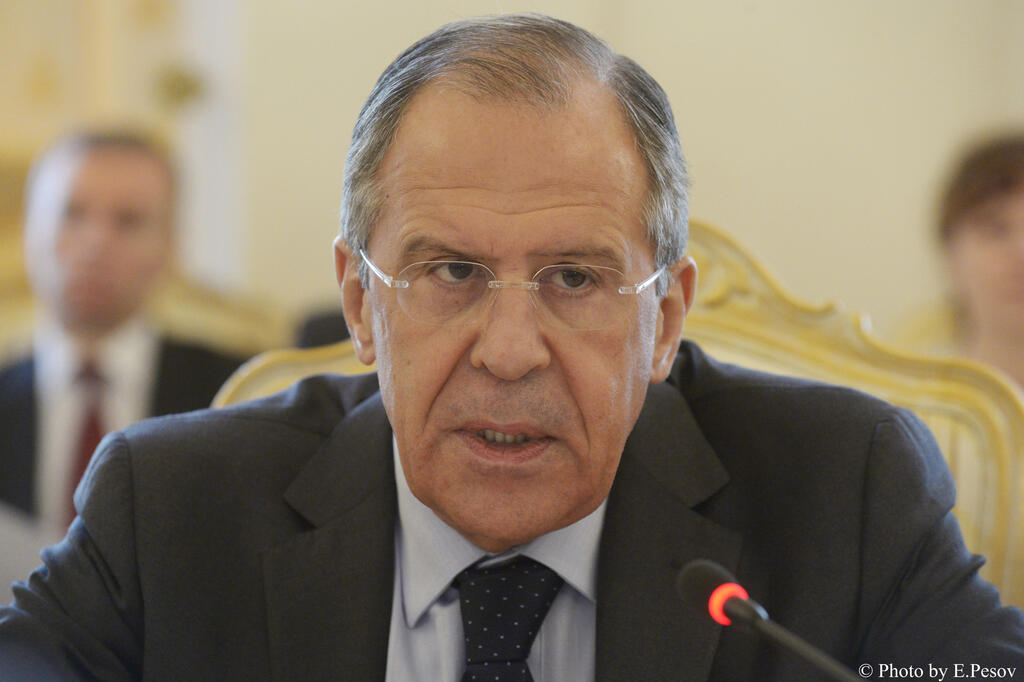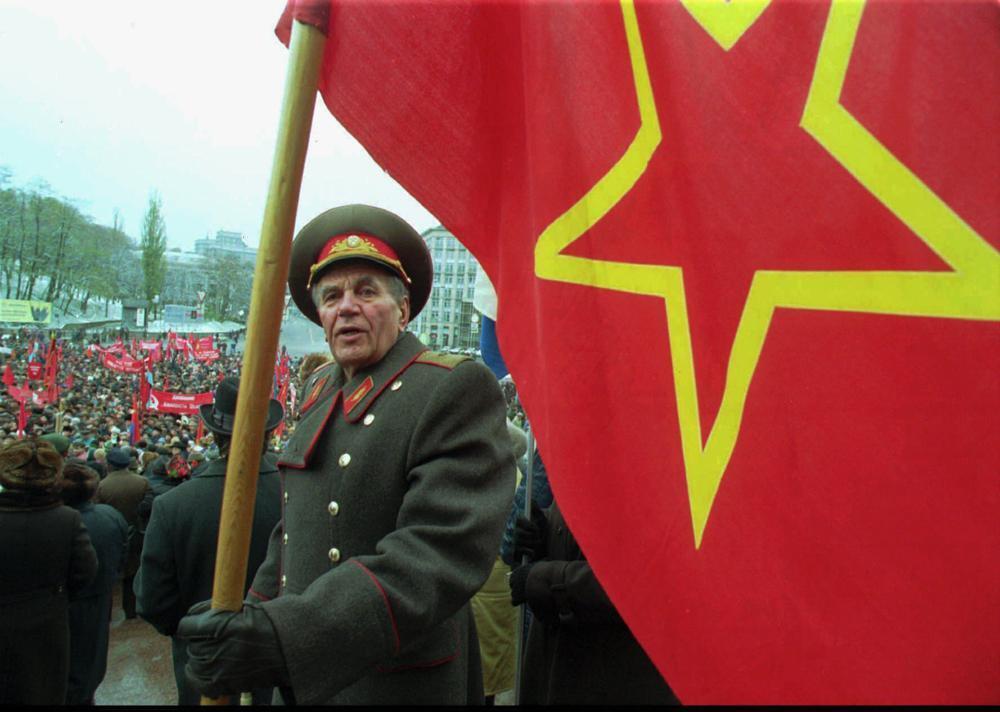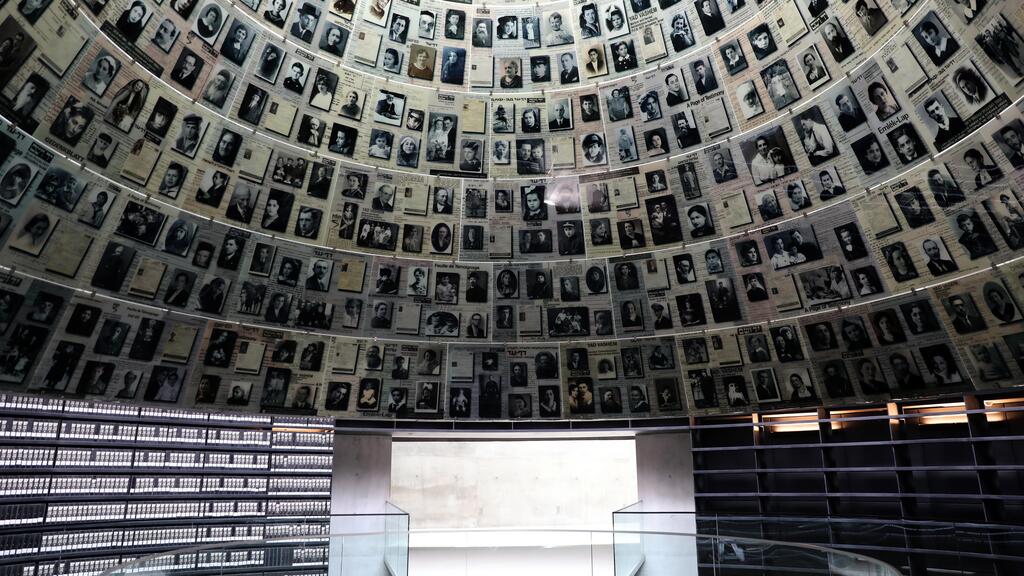Russian Foreign Minister Sergey Lavrov’s statements on Hitler and Ukrainian President Volodymyr Zelensky echo Soviet-era antisemitic and anti-Zionist propaganda, according to regional experts.
In an interview with Italian media on Sunday, Lavrov was asked how Russia can purport to be “de-nazifying” Ukraine when its president is himself Jewish.
4 View gallery


Minister of Foreign Affairs of the Russian Federation Sergey Lavrov
(Photo: Minister of Foreign Affairs of the Russian Federation Sergey Lavrov )
“I could be wrong but Hitler also had Jewish blood,” Lavrov responded. “[The fact that Zelensky] is a Jew doesn’t mean anything. Wise Jewish people say that the most ardent anti-Semites are usually Jews.”
Claims that Hitler was of Jewish descent are unfounded and have been repeatedly disproved by historians.
Izabella Tabarovsky is a senior program associate at the Wilson Center’s Kennan Institute in Washington, DC, a think tank for advanced Russia and Eurasia studies.
Tabarovsky, who grew up in the Soviet Union, specializes in Soviet antisemitism and anti-Zionism. She said that she was “disgusted” by Lavrov’s statement, which she called an “antisemitic dog whistle.”
“It’s the kind of talk you would hear inside Russia and during Soviet times,” she said. “They spent decades during Soviet times trying to smear Jews. The point of what [Lavrov] is saying is to try to smear Zelensky.”
4 View gallery


An unidentified general in a former Soviet army uniform, holds a red flag during a rally on the occasion of the 78th anniversary of the Bolshevik revolution, in Kiev
(Photo: AP)
The Kremlin understands that the Ukrainian president’s Jewish identity undermines Russia’s claim that Ukraine is run by Nazis, Tabarovsky explained. For this reason, Russia is relying on old propaganda models to attack Zelensky and delegitimize him.
“In Soviet times they used to compare Zionists – but ultimately it was any Jew who disagreed with them – to Nazis and fascists,” she said. “There was this idea that the Jews were taking over from the Nazis.”
According to Tabarovsky, there are many visual representations from that period that attempt to draw parallels between Jews and Hitler. Lavrov’s remarks could lead to an increase in antisemitism.
“The danger is that once you start saying these things out you’re waking up the beast. The virus [of antisemitism] is always there,” Tabarovsky said.
Others also saw parallels between Lavrov’s remarks and Soviet propaganda.
Yigal Liverant, an Israeli-Ukrainian historian and expert on Russian history and political affairs, said that such rhetoric is closely tied to the anti-Zionism that first became prevalent in the Soviet Union in the late 1960s.
4 View gallery


Israelis watch Zelensky address carried live in Tel Aviv city square on Sunday
(Photo: Reuters)
“Lavrov is a Soviet man, he comes from that generation and these statements come from all of these ideas that colored Israel as a new personification of Hitler,” explained Liverant, who is currently completing his doctoral studies at Tel Aviv University. “[They lay out] the new Jewish nationalism as feeding off of the same roots as Nazism.”
Like Tabarovsky, Liverant believes that Moscow is finding it challenging to provide a convincing justification for the war and its claims of “denazification.”
“The fact that Zelensky is Jewish and his defense minister is Jewish makes it difficult for them,” Liverant said.
Lavrov’s words sparked outrage in Israel, with several officials swiftly condemning the remarks and Prime Minister Naftali Bennett stating that he viewed them “with utmost severity.”
Meanwhile, Yad Vashem, Israel’s national Holocaust memorial, said that Lavrov was propagating an inversion of the Holocaust – whereby the victims are turned into perpetrators.
4 View gallery


An interior view of a the empty Hall of Names at the deserted Yad Vashem Holocaust Memorial Museum in Jerusalem
(Photo: AFP)
According to Yair Navot, an analyst and expert in Russian affairs, the remarks demonstrate that the Kremlin is escalating its propaganda efforts amid ongoing military losses in Ukraine.
“This was a very grave statement coming from a senior official, especially since he’s Russia’s foreign minister,” said Navot, who was also a former Moscow correspondent for Yedioth Ahronoth. “It’s unusual, but it also shows us how severe Russian propaganda has gotten with regards to Ukraine.”
Such statements not only serve to “cheapen the Holocaust,” but could also lead to a rise in violent antisemitic incidents, he warned.
“This is a [form of] victim-blaming that says that the Jews are responsible for what happened to them,” Navot said. “It’s a blatant lie.”

